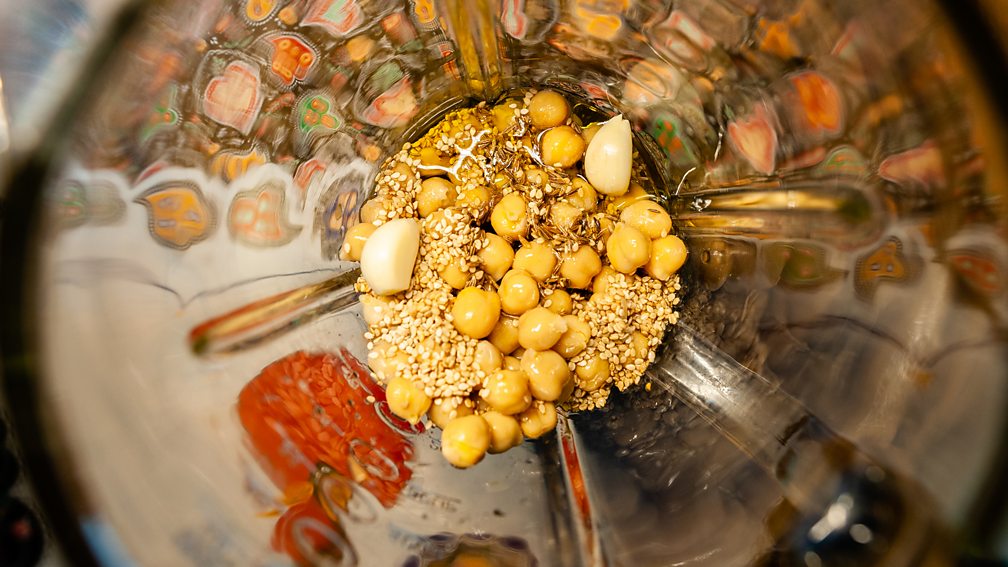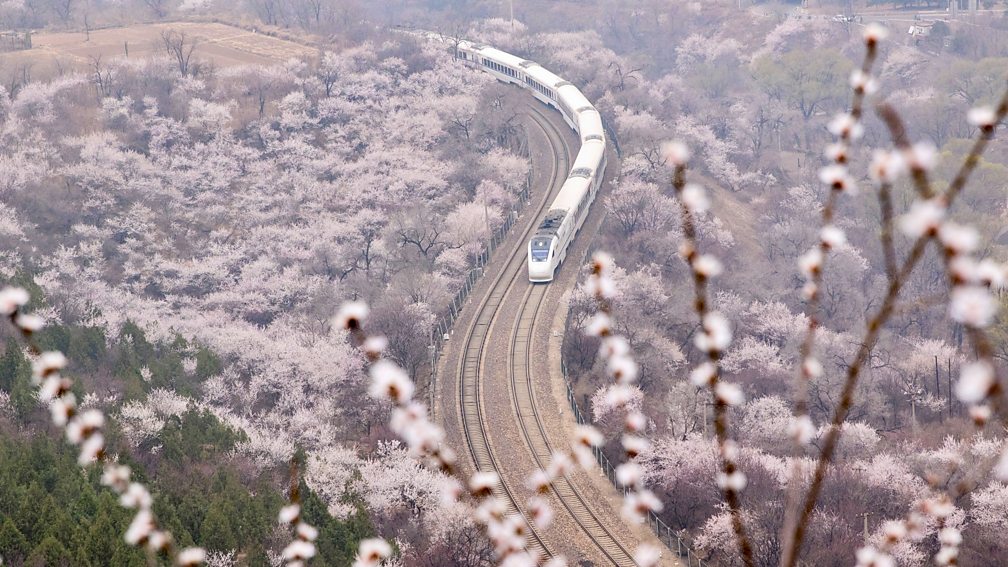Six ways to lower your carbon emissions quickly

Tackling climate change on a global level is an immense challenge – but some small, easy actions are accessible to most people.
Many millions of people around the world are expected to participate in Earth Day on Saturday in support of environmental protection. Uppermost in the minds of many is climate change – and the need to rapidly cut global greenhouse gas emissions.
Much of the change needed to curb climate change quickly goes well beyond what any individual can do – from improving renewable energy infrastructure, to a rapid phase-out of fossil fuels. But individual actions can add up too.
This Earth Day, Future Planet examines some of the most impactful, immediate changes you can make today to help lower your emissions.
Fewer flights
If all flights on Earth were suddenly stopped, it would in an instant halt at least 2.5% of all CO2 emissions.
Aviation contributes around one billion tonnes of CO2 emissions every year. From 2013 to 2019, emissions from the aviation sector grew 30%, according to a report by the International Council on Clean Transportation. Despite a downturn due to the pandemic, its emissions are now on the rise again.
While emissions from aviation overall are relatively small, each flight emits a lot of greenhouse gases. A return flight from London to New York, for example, emits almost a tonne of CO2, and the climate impact is even larger due to other non-CO2 emissions from aircraft.
A blanket ban on flying would be unthinkable, of course. But decreasing the demand for flights is entirely possible, and doesn't mean you can't travel. You could try taking the train or bus, which have far lower emissions, one or both ways instead. Or you could try to fly half as often for twice as long. Flying economy also tends to be far lower emission than flying business or first class. (Read more about how you can reduce your emissions from flying.)
Changing the way some aircraft are powered could also soon be within reach. Smaller planes could soon fly on electric engines. Norway, for instance wants all short-haul flights leaving its airports to be electricity-powered by 2040. Meanwhile, larger planes could switch to alternative fuels such as biofuels, synthetic fuels made from renewable energy or, in the very long term, hydrogen. (Read more about the fastest ways aviation could cut its carbon emissions.)
Food
Switching to a plant-based diet could save you around 0.8 tonnes of CO2e each year. If everyone in the world shifted to a plant-based diet, it would free up 75% of the world's agricultural land for other uses – such as a range of biodiverse and carbon-capturing ecosystems.
But even if you don't go entirely plant-based, switching individual foods for a lower-carbon option is one way to reduce emissions from your diet. For example, cow's milk scores worse than plant-based alternatives on land use, greenhouse gas emissions, water use and pollution from fertiliser, while different kinds of protein can also have different emissions. (Read more about the lowest-carbon protein.)
As Future Planet has investigated, small tweaks to your diet and the way you cook can have a significant payoff – from batch cooking, to focusing on using fewer animal products rather than food miles. (Read more about the climate benefits of veganism and vegetarianism.)
Another way to make big emissions savings is to avoid food waste, which amounts to 900 million tonnes a year (or 23 million large truckloads a year). (Read more about how cutting food waste can help the climate.)

Transport
Private transport is one of the world's largest sources of greenhouse gas emissions, and in countries like the UK and the US, the transport sector – dominated by cars, trucks, buses and motorbikes – is now responsible for emitting more greenhouse gases than any other.
If you have a car, simply cutting down on how much you use it can be a great first step to reducing your emissions. In many places, the majority of car journeys are only for relatively short distances, and walking or biking are great alternative which can also help keep you healthy.
For longer journeys (and where it's available), public transport tends to be a far lower carbon option than driving. (Read more about how we can cut down the carbon footprint of our daily commute.)
In the home
Some changes to your day-to-day activities at home make more difference than others. Heating homes is one of the main sources of emissions, especially in countries where the predominant source of heating is burning fossil fuels. In the EU, heating accounts for 63% of household energy consumption. In the UK, heating accounts for a third of emissions and in the US around half of homes are heated using gas. That needs to change drastically if we are to limit global warming.
However, turning down your thermostat by just a degree or so can cut your heating bill by 10%, and reduce emissions. In hot climates, using a little less air conditioning in summer can also help with both costs and carbon.
Another effective way to reduce your heating emissions is to install a heat pump, which, rather than burning fuel, concentrates heat energy already present in the air, ground or water, and pumps it through pipes. If the electricity is generated using renewables, heat pumps emit no carbon. (Read more about how to cut carbon out of your heating.)
Home cooling is another big contributor to climate change. Rising heat is increasing the demand for air conditioning worldwide and by 2050, the number of AC units is expected to more than triple worldwide. These units contain refrigerants that are potent greenhouse gases and use huge amounts of electricity. But there are more sustainable alternatives. From ancient building design, such as jaali architecture in India, to green roofs, planting trees or in some cases simply closing curtains in hot weather, there are many ways to keep buildings cool without contributing to global warming.
Other changes like using cold water to wash your clothes and air-drying them rather than using a tumble dryer can also save carbon in your home – nearly 0.5 tonnes CO2e per year.
Finance
It might not be the most obvious way of reducing your carbon footprint, but how you save, invest and give away your money can make a big difference for climate change.
Many banks are well-documented financiers of the climate crisis, providing trillions of dollars to fossil fuel extraction. The money you put in the bank doesn't directly go to this (as typically consumer banking arms of banks are separated from their investment arms) experts and campaigners argue where you put your money can still make a difference to their social licence. There are a rising number of alternative banks marketing themselves as ethical and funders of solutions, while alternatives to banks, such as credit unions or building societies, are also often less likely to be funding fossil fuels due to the way they invest. (Read more about why your banking habits matter for the climate.)

Your pension, on the other hand, is usually directly invested. The enormous amount of money invested globally in pensions means they have a serious influence over the direction of the global economy. Despite that, most people don't even know where their pension is invested. (Read more about how to make your pension more sustainable.)
Fashion
Each year more than 100 billion items of clothing are produced globally, with 65% of these ending up in landfill within 12 months. The fashion industry is responsible for 8-10% of global carbon emissions, more than aviation and shipping combined.
How can we make our wardrobe more sustainable? You could start by buying your clothes second-hand, in thrift shops or on sites such as eBay, Vinted or Depop, or renting them, instead of purchasing new items. (Read more about how to buy clothes that are good for the climate.)
Cutting down on washing can also help further lower the carbon footprint of your wardrobe and reduce the number of microplastics that end up in our waterways. Finally, it's important to think about what we do with our clothes at the end of their life. Instead of throwing clothes away in landfill, a better approach is to pass them onto friends, sell them online or take them to second-hand shops. (Read more about why it’s so hard to recycle some clothes.)
There are of course many other changes you can make too, from the relatively small ones, such as upgrading your lightbulbs to more efficient LEDs (0.1 tonnes CO2e per year), to the very large life choices, such as choosing to have one fewer child (58.6 tonnes CO2e per year for someone in a developed country, according to one study). Many people may choose to take part in one form of climate activism or another. (Read more about the surprising science of climate protest.)
The good news is that many of these changes aren't just good for the climate, but good for your health and mental wellbeing. And on a larger scale, by helping curb climate change, these small actions can add up to also improve gender equality, racial equality and biodiversity.
--
Isabelle Gerretsen, Jocelyn Timperley, Martha Henriques and Stephen Dowling contributed to this article.
--
Join one million Future fans by liking us on Facebook, or follow us on Twitter or Instagram.
If you liked this story, sign up for the weekly bbc.com features newsletter, called "The Essential List" – a handpicked selection of stories from BBC Future, Culture, Worklife, Travel and Reel delivered to your inbox every Friday.




